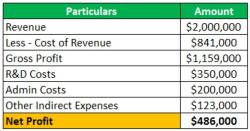What is Fiscal Agency?
"Fiscal agency" refers to a financial service provided by a government agency or financial institution on behalf of another entity. In this context, the term "fiscal" relates to financial matters, including the management and handling of funds. A fiscal agent acts as a representative or intermediary in various financial transactions, managing funds, issuing securities, and performing other financial services on behalf of a client or government entity.
Key aspects of fiscal agency include:
Fund Management: A fiscal agent often manages and oversees funds on behalf of a client. This can involve the collection, disbursement, and investment of funds according to the client's needs and objectives.
Securities Issuance: Fiscal agencies may be responsible for the issuance and redemption of securities, such as bonds or other financial instruments. They facilitate the process of raising capital by handling the sale and distribution of these securities.
Trustee Services: Fiscal agents may act as trustees in various financial arrangements, including trust funds or other financial structures. In this role, they ensure that the terms and conditions of the trust are adhered to and that the interests of the beneficiaries are protected.
Payment Agent: In some cases, fiscal agencies serve as payment agents, facilitating the distribution of payments, dividends, or interest to bondholders or investors.
Record Keeping: Fiscal agents maintain detailed records of financial transactions, ensuring transparency and accountability. This includes keeping track of funds, investments, and other financial activities.
Compliance and Reporting: Fiscal agents often assist clients in adhering to legal and regulatory requirements. They may be responsible for preparing financial reports, ensuring compliance with relevant laws, and providing information to regulatory authorities.
Custodial Services: Fiscal agencies may offer custodial services, safeguarding financial assets and ensuring their proper handling. This can involve holding securities, managing safekeeping, and providing related custodial functions.
Financial Advisory Services: Some fiscal agents also offer financial advisory services, providing guidance on financial strategies, investment decisions, and other aspects of financial management.
Governments, municipalities, corporations, and other entities often engage fiscal agencies to benefit from their expertise in financial management and to streamline complex financial transactions. By outsourcing fiscal responsibilities to a specialized agent, entities can focus on their core activities while ensuring that their financial affairs are handled efficiently and in compliance with relevant regulations.
It's important to note that the specific functions and services provided by fiscal agencies can vary based on the terms of the agreement between the client and the fiscal agent. Additionally, fiscal agencies are expected to operate with a high level of integrity, transparency, and professionalism to maintain the trust of their clients and stakeholders.
Exploring Fiscal Agency and Its Role
A fiscal agency plays a crucial role in managing financial matters for another entity. It acts as a trusted third party, handling various fiscal tasks to ensure sound financial management and compliance with regulations. Understanding the concept of a fiscal agency and its significance is essential for various stakeholders, including investors, government agencies, and non-profit organizations.
Functions and Responsibilities of a Fiscal Agency:
- Financial Administration:
- Cash Management: Receiving, processing, and disbursing funds according to the entity's budget and guidelines.
- Accounts Receivable and Payable Management: Ensuring timely collection of receivables and managing payments to vendors and creditors.
- Financial Reporting: Maintaining accurate financial records and preparing periodic reports for various stakeholders.
- Debt Management:
- Bond Issuance and Redemption: Assisting with the issuance of bonds, managing investor relations, and facilitating timely redemption.
- Interest Payment Processing: Ensuring accurate and timely payment of interest on outstanding debt.
- Tax Compliance:
- Filing Tax Returns: Preparing and filing required tax returns for the entity in accordance with regulations.
- Withholding and Payment of Taxes: Managing payroll taxes and other applicable withholdings, ensuring timely payments to tax authorities.
- Compliance and Audit Support:
- Internal Controls and Risk Management: Implementing and monitoring internal controls to mitigate financial risks and ensure compliance with regulations.
- External Audit Support: Assisting with external audits by providing necessary documentation and information.
Significance of Fiscal Agency in Financial Management:
- Enhanced Efficiency and Accuracy: Fiscal agents bring expertise and specialized systems to streamline financial processes, leading to higher efficiency and accuracy in financial management.
- Increased Transparency and Accountability: By maintaining detailed records and ensuring compliance, fiscal agencies promote transparency and accountability, building trust with stakeholders.
- Improved Creditworthiness: A well-managed fiscal agency can enhance an entity's creditworthiness by demonstrating sound financial practices, potentially leading to better borrowing rates and access to capital.
- Reduced Risk and Cost: Fiscal agencies can help mitigate financial risks through effective internal controls and compliance measures, potentially reducing costs associated with errors, penalties, or fraud.
- Focus on Core Activities: By outsourcing financial tasks to a fiscal agency, entities can focus on their core operations and expertise, leading to improved overall performance and efficiency.
In conclusion, fiscal agencies play a critical role in financial management, providing expertise, efficiency, and compliance support to various entities. Their involvement can lead to improved financial health, increased transparency, and reduced risks, ultimately contributing to the success of the organization they serve.
I hope this information helps! Feel free to ask further questions or explore specific aspects of fiscal agency in more detail.













